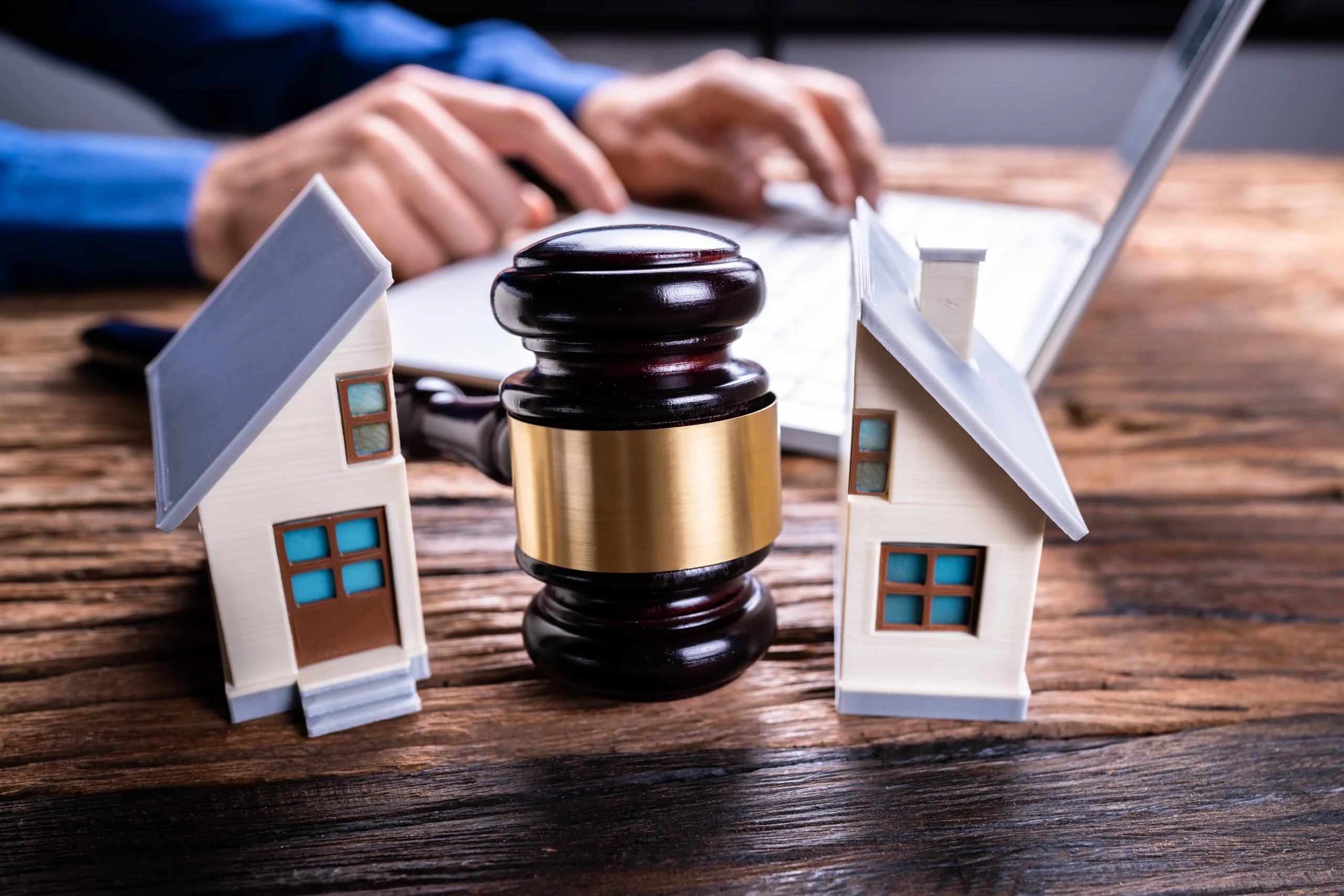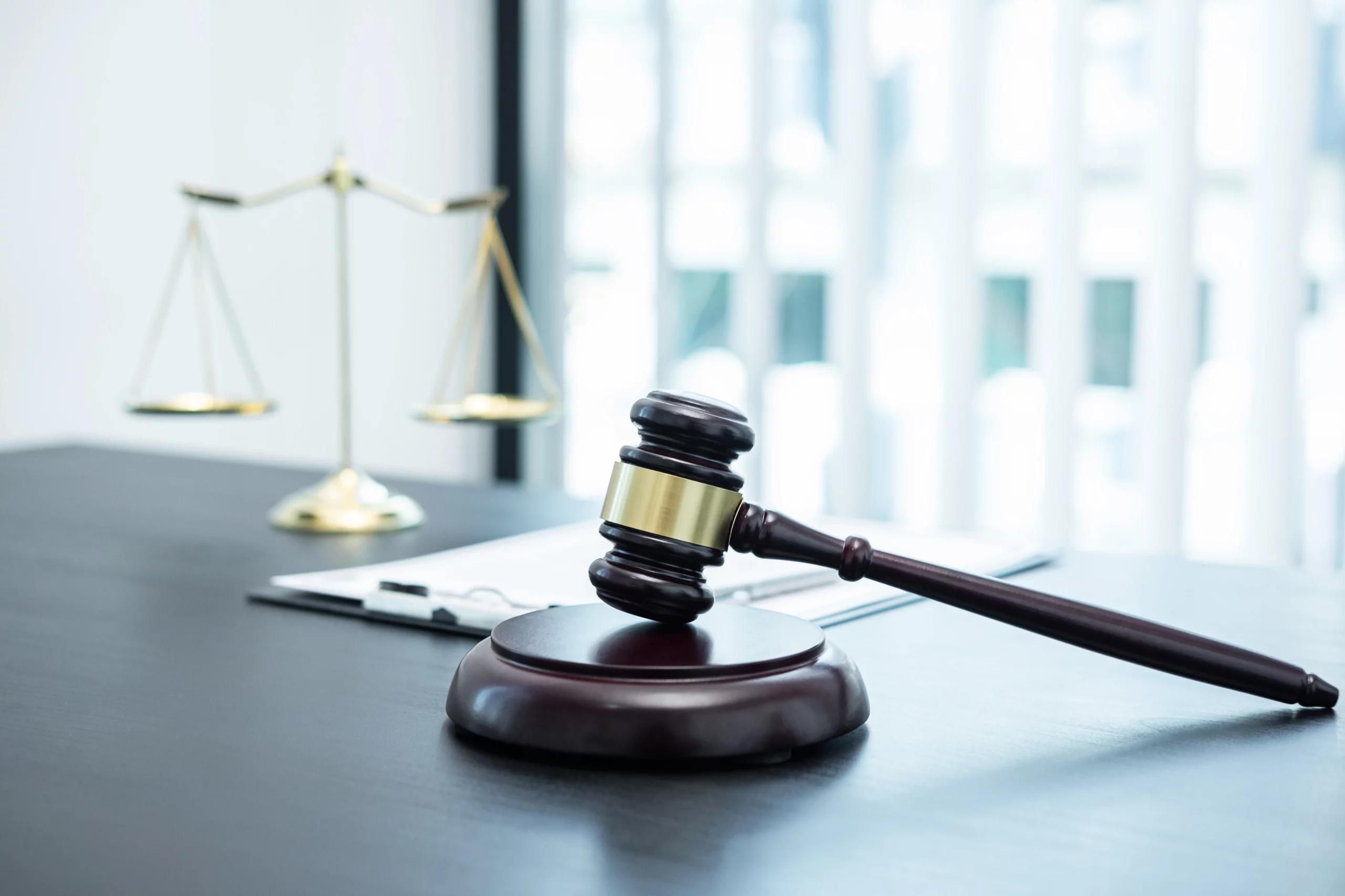What to Do if Slip & Fall Claim is Denied
The Best Premises Liability Injury Law Firm
Premises Liability > Claims > Insurance Denial
You have options if the insurance company denies your slip and fall claim. Learn why your claim was denied and what you can do to get paid.
$13-14 million is spent annually in the United States to treat injuries sustained from slip and fall accidents.
The vast majority of these victims will make injury claims with insurance companies.
However, insurers and claim adjusters routinely hunt for loopholes to avoid paying out on claims or offering inadequate compensation if a payout is granted.
It’s very uncommon for a company to back up a denial by claiming that you couldn’t provide sufficient evidence to show that the property owner was to blame for your accident. The insurer may also state that it cannot pay your claim because the policy has expired or you have failed to meet certain filing criteria.
Don’t give up on getting the money you’re owed from the insurer, no matter what they say. You can still seek compensation for the harm you sustained in the accident, but you might need to employ a lawyer.
Injury Claims
Free Consultation
NO FEE UNLESS WE WIN
Denial Bias in Insurance
Keep fighting for your right to compensation if your slip-and-fall claim was turned down. You should know that insurance firms are for-profit enterprises. Insurance companies deal with injury claims daily, and if they can get away with it, they will try to minimize the victim’s payout in the event of a slip and fall.
Insurance company profits and the claims adjuster’s bonus increase when claims are denied. Simply put, the insurance claims process is slanted toward denying claims.
Slip-and-fall claims are notoriously difficult for insurers to settle, and they employ various strategies to minimize or completely avoid paying out benefits.
Be Wary Of Adjusters Who Try To Play Nice
When they are first given your claim, claims adjusters often try to become fast friends with you. They want you to give a recorded statement explaining your side of the incident.
Adjusters will use these assertions to bait you into making admissions that will damage your claim. If they are successful, your words could be used to justify a low settlement offer or a claim denial.
Attorneys specializing in slip and fall cases often urge clients not to speak with insurance adjusters without legal assistance.
Don’t rush into making a recorded statement. If you insist on going alone, make sure you put in the time and effort to properly prepare yourself. After it has been said, there is no way to take back a potentially damaging statement.
Negotiate A Low-Level Compensation For Falls And Sprains
In most cases, adjusters will begin negotiations with a very low settlement offer for the claimant.
The adjuster will often state that:
- This is the most the firm can pay for this claim
- This is a fair offer.
- The adjuster has no right to make a higher offer.
In most cases, this is inaccurate because insurers are incentivized to present a low offer. They want you to feel hopeless, so you’ll take what they’re offering and not hesitate to negotiate.
Because of your agreement, the insurance company will be able to settle your claim at a reduced cost, saving you money.
Alternatively, if you react negatively to the low offer, you might say things that give the adjuster insight into getting you to accept a lower settlement. Never suggest that you are in a rush or desperate to settle by saying things like, “I’m behind on rent” or “I need the money for a forthcoming vacation or holiday.”
If someone makes you a cheap offer, you shouldn’t take it personally. Refuse the offer politely and carry on with your talks.
Patiently Waiting It Out Is Essential For A Stalling Tactic
Sometimes, insurance firms may deliberately drag out the process of settling a slip-and-fall claim. The adjuster will not rush to settlement if you have already tipped your hand by telling them that you need the money immediately.
They know you can’t wait forever, so they don’t bother.
Common delaying strategies include:
- Not returning your calls
- Refusing to negotiate
- Not responding to inquiries
Claims adjusters often procrastinate in the hopes that you will lose faith in your claim. One more way that delays can drive you crazy and make you settle for less than you deserve is by frustrating you.
Working with a sluggish or overburdened claims adjuster is a possibility. Any snags in progress here are likely coincidental, so be patient as negotiations continue. Your salary won’t go up if you’re frustrated.
Refusing To Acknowledge Responsibility Can Be A Tactical Move.
If you want to prevent injury victims from claiming compensation, one effective tactic is encouraging them to believe they are not at fault.
Adjusters hope that slip-and-fall victims will give up after receiving a denial of their claim. When an insurance company rejects a claim, most consumers simply give up.
The insurance company gains much more than it would from a lowball offer because it avoids paying out any money.
Avoid being disheartened if you receive a negative response. It is not too late to seek compensation for your suffering.
Reasons A Claim Was Denied
According to federal and state insurance rules, insurance companies can refuse to pay for an injury claim for any reason they see fit.
However, certain typical explanations exist for the denial of slip and fall occurrences.
Insufficient Data To Determine Causality
When filing a claim for a fall injury, you must provide evidence of your injuries and the circumstances under which they occurred.
You must prove that the store or property owner was at fault for the hazardous conditions that caused your slip and fall accident.
Your burden is to show that the owner:
- Owed you and other people a responsibility not to intentionally cause harm; and
- They owe you a duty of care, and they breached it by allowing a hazardous situation to exist
- Failing to make reasonable efforts to prevent one.
Each of these claims needs to be backed up by substantial proof. Should you fall short, the claims adjuster will have grounds to reject your claim. The adjuster may argue that you have not provided sufficient proof to prove that their client was at blame for your injuries.
Evidence that helps establish causation in slip and fall cases includes:
- Surveillance videos
- Incident Reports
- Photos
- Witness statements
Insufficient Proof Of Your Damages And Losses
If you can’t prove that you were hurt in the collision, it won’t matter how much evidence you have indicated the property owner was at fault.
The insurance company will have no motive to pay out on your claim unless you can prove that you were hurt somehow. Insurance companies often won’t fork over much money to cover the stigma associated with embarrassing stumbles in public.
Several pieces of evidence can help prove that you were hurt in a fall, including:
- Medical records, pictures,
- Videos of your injuries.
- Clothing with blood,
- Tears, or shoes that don’t work.
After proving you were hurt, there’s still more work to be done if you want your claim to be accepted. The next step is to provide the adjuster with proof of your slip and fall damages. Your injuries from a slip and fall have cost you money,
You may be entitled to damages.
- Medical bills, wages,
- other out-of-pocket
- costs are all potential harm.
- Accidental destruction of property
What we’ve discussed so far are all types of economic losses. In addition to monetary losses, non-economic harm often occurs in slip and fall lawsuits. It might be challenging to prove the value of non-economic damages without supporting documentation like a bill or a receipt.
Typical forms of non-economic loss include:
- Emotional distress
- Loss of companionship;
- Dissatisfaction with life;
- Being unable to fully participate in everyday activities;
- Physical impairment
- Disfigurement
Keeping a journal of your injuries might be a useful tool in demonstrating your distress. Write down how you feel (physically and mentally), what you can’t do due to your ailments, and what you’ve missed out on.
Turndowns For Existing Conditions
An insurer’s denial of a claim can be based on the fact that you were predisposed to injury or illness. Pre-existing injuries are those that have already occurred.
Take the case of a woman who has suffered repeated ankle injuries while playing sports. The insurance company will likely reject her claim if she sustains a similar injury to the same ankle in a fall, claiming that it occurred in a previous sporting event.
You should be able to settle a claim for a re-injury of the same body part even if you already have an injury to the underlying tissue. To the same extent, the frail and elderly fact that you are elderly or otherwise vulnerable to injury is not a valid defense against a slip-and-fall lawsuit.
Your Failure To Take Preventative Measures
It is reasonable for an adjuster to reject a claim for injuries sustained in a slip and fall if the claimant has not taken reasonable measures to lessen the severity of those injuries.
When you make an effort to lessen the severity of your injuries, this is referred to as “mitigating.” To do this, you should go to the hospital, listen to your doctor, and try to avoid making your injuries worse.
Take the case of the man who fell down the stairwell of a theater and damaged his knee. The victim does not help his condition by jogging every day if his doctor recommends that he rest and not exercise for two weeks.
After a slip and fall, you should consult a doctor as quickly as possible. This is the case even if you don’t think anything is wrong. Symptoms of a fall injury could not show up for hours or days after the incident.
The insurance company may claim that your injuries are unrelated to the slip and fall if you haven’t been seen by a doctor immediately.
Incomplete Claim Submission
Submission criteria will be included in most slip and fall claims. In most cases, the adjuster will inform you about these prerequisites when you first file a claim. Take note of these and double-check that you’ve met all requirements before proceeding.
Injuries sustained on state, local, or federal government property have filing processes and strict time limits.
An insurance company may reject a claim if it is incomplete or does not meet the necessary filing guidelines.
Demanding An Exorbitant Amount Of Money In Settlement
Insurance claims adjusters often have to juggle several cases at once. They are busy individuals who value efficiency and aim to reduce costs for their company.
Beginning settlement negotiations with an unrealistic demand will likely result in the adjuster rejecting your claim in its entirety. If the claim is denied, the claims adjuster can go on to another case without having to pay anything.
If you begin negotiations with an excessive compensation demand, you will lose credibility with the adjuster. When negotiating, try to maintain a reasonable attitude.
Just because an adjuster makes you an offer doesn’t mean you have to take it. Instead, be prepared to prove the entire extent of your slip-and-fall injuries in court.
Insurance Coverage No Long In Effect
When an individual or company goes without insurance for an extended time, this is called a lapse in coverage. Failure to renew a policy can occur when the policyholder or the insurer does not take the necessary steps to keep the policy in effect.
You will not be compensated for injuries sustained in a slip and fall if the business owner does not have insurance due to a lapse.
Abuse Of Insurance Coverage
Your insurance company might have behaved badly if they had declined your claim. There may be legal recourse available to you, such as filing a lawsuit, or you might make a formal complaint to the insurance regulator in your state.
It is the law in every state that insurers must act in good faith and fairly toward claimants.
This usually necessitates the following actions from insurers:
- providing clear communication with claimants
- processing claims within a reasonable time frame
- settling disputes fairly and reasonably
- giving reasonable and transparent reasons for denying claims.
If an insurer fails to abide by these guidelines, it may be behaving in bad faith, giving rise to legal action on your part.
Instances of bad faith dealings include, but are not limited to:
- Delaying in explaining a claim denial.
- Failing to make a fair settlement when a fault is easily assigned to the insurer’s client.
- Denying a claim without conducting a reasonable investigation.
- Failing to use realistic standards in conducting an investigation.
Consult a personal injury attorney to discuss your options if you believe your slip and fall claim was dismissed due to bad faith practice.
Options Appealing A Declined Accident Compensation Claim
Even if your claim is denied, other ways to get paid may still exist. Taking proactive measures to get financial compensation for your losses is possible.
Discussions With The Adjuster Still Going On
You should keep negotiating with the insurance company even if the adjuster says your accident is not covered. In this case, the question of whether or not an insurance policy covers your injuries is only another point of discussion.
It is recommended that you request a written justification from the insurer’s adjuster for the refusal. Once you know the reasons, you can provide a counterargument as to why the policy should still cover your injuries despite the reasons given.
Offer further evidence to support your claim if an adjuster says you didn’t prove that the property owner was accountable for your injuries or provide enough information regarding damages.
Even if you were only slightly hurt and can’t produce much proof, you should still try to secure a nuisance value settlement.
If the adjuster refuses to provide a written explanation, you might remind them that you asked for one in a certified letter. Include a copy of your letter in the injury claim paperwork you keep. The adjuster may take action after receiving this letter. Inaction on your part may be used as evidence of bad faith in the event of a lawsuit.
Claiming From Another Party
Occasionally, an adjuster will have valid reasons to reject a claim. If this is the case, you should examine the specifics to determine whether or not you have grounds to submit a claim to the other party’s insurance provider.
If someone were to fall on a rake in a park and file a claim against the city, the city would likely deny the claim because it would not be liable for its upkeep. When someone gets hurt, they can make a lawsuit against the company or individual that abandoned the rake in the park. Maybe it was a landscaping company or someone else that messed up.
Pursuing Legal Action Against The Landlord
If the claim adjuster assigned to your case refuses to budge, you have the option of filing a lawsuit to force a settlement.
You agree not to file suit against the insurance company that handled the property owner’s responsibility for your slip and fall accident. The responsible company or property owner will be named in your injury case.
It’s important to file your lawsuits in the right court, such as the district or superior court in your home county or the county where the injury occurred.
An action in small claims court may be appropriate if the damages you seek are less than $10,000. In most jurisdictions, small claims cases are limited to between $5,000 and $10,000, and the requirements are simplified for those who do not want to retain legal representation.
However, if the dispute is too large for a small claims court, the litigation procedure can be time-consuming, expensive, and fraught with obstacles.
The phases of a lawsuit are:
- Documents filed with the court The plaintiff must file a complaint, and the defendant must file an answer.
- Depositions, interviews with potential witnesses, requests for relevant documents, and even attempts at re-creating the accident scene are all part of the “discovery” process used by both sides.
- The filing of motions allows the parties to request that the judge take action, such as excluding particular evidence from the case.
- Depending on the case’s specifics, the trial phase might span anything from a few days to many weeks.
- The appeals process allows a losing party to ask a higher court to examine the trial proceedings again.
Before a trial ever begins, most claims are settled out of court. A judge or jury will decide if your lawsuit proceeds to trial.
Why You Need A Lawyer
Even if the insurance company has already dismissed your slip and fall claim, many avenues are still open to you with the help of an attorney.
Evaluating The Validity Of Your Claim
Most personal injury lawyers provide free initial consultations to determine how much your case is worth and discuss your choices without financial risk. An attorney can contact the adjuster and keep negotiating on your behalf.
Insurers may be more willing to settle for a fair sum if represented by an attorney familiar with their strategies.
Your claim may have been rejected for lack of evidence, but a lawyer can help you obtain the evidence you would have trouble locating on your own. The property owner may be compelled to provide CCTV footage and incident reports if your lawyer files a subpoena.
A personal injury attorney is also better positioned to evaluate the details of your case and identify any third parties who may share responsibility for your injuries. If you feel that a broken ice machine caused the puddle at a convenience shop, you may have a case against both the store and the manufacturer.
Assistance In Courtroom Representation
If you filed a lawsuit, you or your attorney had to bring an action within your state’s statute of limitations for harm claims. Your legal right to any compensation will expire if you do not settle your claim or bring suit within the applicable time limit.
If you decide to sue a company or an individual for damages, you may rest assured that competent legal counsel will defend them. Your slip-and-fall injury claim was refused, but the insurance company owes it to their insured to defend them in court. Have your lawyer deal with them instead.
Assistance with Establishing Bad Faith
A lawyer can also help you file a claim for bad faith with the court or the insurance commissioner in your state.
To show bad faith, you normally have to prove that you didn’t receive the advantages you were entitled to under the owner’s policy. Or, you might also show that the insurance company unreasonably withheld your benefits.
A legal representative can assist in gathering the necessary proof for such claims.
Personal injury lawyers often only get paid if they win your case. Put another way; if your claim does not settle or you do not win in court, you will owe them nothing.
Don’t give up because an insurance adjuster dismissed your claim for damages after a fall. You should request the reasoning behind the refusal and see a personal injury attorney learn more about your legal alternatives.

FREE CASE REVIEW
We are standing by ready, willing, and able to help you. You can schedule a free consultation here on our website, or give us a call and talk to us. Whatever you prefer, we will accomodate you!








